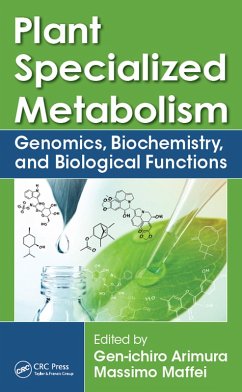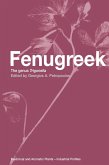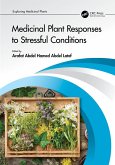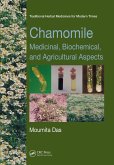Around 200,000 specialized metabolites are formed by a wide array of plant metabolic pathways from numerous plant taxa and through learning how other species (including human beings) rely on them.
Plant Specialized Metabolism: Genomics, Biochemistry, and Biological Functions will provide the reader with special insights into the sophisticated nature of these metabolites and their various and valuable uses based on the most recent findings in science.
Dieser Download kann aus rechtlichen Gründen nur mit Rechnungsadresse in A, B, BG, CY, CZ, D, DK, EW, E, FIN, F, GR, HR, H, IRL, I, LT, L, LR, M, NL, PL, P, R, S, SLO, SK ausgeliefert werden.









